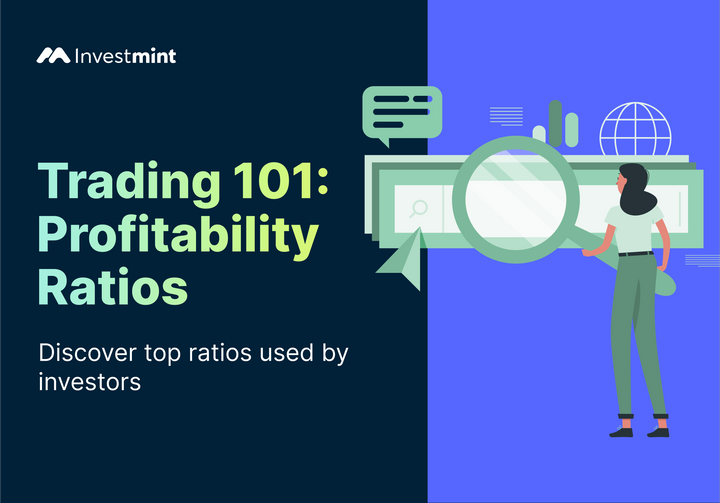Should You Still Invest In International MFs Given The Changes In Taxation Rules In 2023?
International mutual funds have been a staple for investors who want to gain exposure in foreign markets. Will new tax rules affect this trend?

Introduction
Investing in international mutual funds has always been an attractive option for those who want to diversify their portfolio and gain exposure to foreign markets. However, recent changes in taxation laws have left many investors wondering if the benefits of investing in international mutual funds outweigh the new tax implications.
In this blog, we will explore the pros and cons of investing in international mutual funds, the impact of the recent tax changes, and whether or not it is still a worthwhile investment strategy. So, whether you're a seasoned investor or just starting out, let’s examine the case of international mutual funds and taxation together with this read.
What Are International Mutual Funds?
International mutual funds give investors an opportunity to invest in a diversified portfolio of foreign securities, managed by professional investment managers with expertise in foreign markets. Investing in international markets can potentially reduce overall risk and increase potential returns, while providing access to markets and industries not available in the investor's home country.
However, investing in international mutual funds also involves risks such as currency fluctuations, political instability, and regulatory changes. It is crucial for investors to carefully consider the risks and benefits before investing in international mutual funds.
How Do International Mutual Funds Work?
International mutual funds are investment vehicles managed by professionals that pool money from various investors to invest in a diversified portfolio of stocks, bonds, and other securities from different countries worldwide.
Investors buy shares in the fund, with their investment's value depending on the fund's performance. Different types of international mutual funds are available, which provide opportunities across various regions or sectors for investment. These funds provide a chance to diversify portfolios, access international markets, and benefit from professional fund managers' expertise.
What Are The Benefits Of International Mutual Funds?
International mutual funds provide a range of benefits to investors seeking exposure to foreign markets. These benefits include diversification, exposure to emerging markets, professional management, liquidity, and convenience.
- Diversification helps investors reduce the risks associated with investing in a single market or country by investing in a broad range of securities from different regions. Exposure to emerging markets offers high growth potential and access to opportunities that may not be available in domestic markets.
- Professional management helps investors benefit from the expertise of experienced fund managers, who analyse and monitor various markets and securities.
- Liquidity makes international mutual funds easily accessible and allows investors to buy and sell shares anytime during market hours.
- Finally, investing in international mutual funds is much more convenient and simple than the complex process of investing directly in foreign markets. Making international MFs an attractive option for investors who want to gain exposure to international markets without the hassle.
What Are The Types Of International Mutual Funds?
International mutual funds can be categorised into various types based on their investment objectives, risk levels, and geographic focus. Here are some of the common types of international mutual funds:
- Global Equity Funds: These funds invest in equity securities of companies across the world, including both developed and emerging markets. They offer diversification across multiple regions and sectors.
- Regional Funds: These funds focus on specific regions such as Europe, Asia-Pacific, or Latin America. They invest in companies operating within those regions, providing investors with exposure to regional economic and market conditions.
- Country Funds: These funds invest primarily in companies within a single country, offering targeted exposure to that country's economy and market.
- Emerging Markets Funds: These funds invest in securities of companies in emerging market countries, which may have higher growth potential and risks.
- Sector Funds: These funds invest in securities of companies within a specific industry or sector, such as technology, healthcare, or energy.
- Balanced Funds: These funds invest in a combination of equity and fixed-income securities, providing a diversified portfolio with potentially lower risk than pure equity funds.
What Factors Should You Consider Before Investing In International Mutual Funds?
Prior to investing in international mutual funds for portfolio diversification, investors should assess their investment objective and risk tolerance:
- The geographic focus should be thoroughly examined to understand policy and trends.
- Analysing a fund's historical performance provides insight into its consistency and potential for growth.
- Additionally, fund fees such as management fees, expense ratios, and transaction costs should be carefully vetted as they can impact the investment's overall return.
- Researching the fund manager's experience and investment philosophy also provides valuable insights.
International mutual funds carry risks, so professional advice is suggested to ensure the investment aligns with financial goals and risk tolerance.
What Are The Taxations Involved In International Funds?
Taxation of international mutual funds can be complicated, and it varies depending on the investor's location and the fund's domicile. Capital gains tax applies when an investor sells mutual fund units at a profit– based on the holding period and tax rate in the investor's country. Dividend tax may also be imposed on international mutual funds, which can impact the investor's overall return on investment.
Additionally, when mutual funds invest in securities in other countries, they may be subject to withholding tax on dividends or interest payments. Double taxation is also possible when both the fund's domicile and the investor's country of residence impose taxes on the investment.
To avoid any tax implications or compliance issues, investors should consult with a tax advisor to understand the tax laws of their country and the implications of investing in international mutual funds. By doing so, investors can make informed decisions and minimise the risk of encountering any tax issues.
Changes In Taxation Rules In 2023
In India, debt funds and international mutual funds are treated similarly. The new debt fund tax rule aims to provide tax parity between the treatment of international mutual funds and domestic funds. Starting April 1, 2023, debt funds will no longer enjoy the benefits of indexation. Instead, all debt fund gains will be taxed at the investor’s applicable tax rate.
Indexation is a method of adjusting the cost of an asset for inflation over time, which helps to reduce the tax burden on long-term investments by adjusting the purchase price for inflation.
For example, an investor who bought a piece of real estate in 2010 for Rs. 50 lakhs and sold it in 2022 for Rs. 1 crore could apply indexation to the purchase price, reflecting the inflation during this period. Assuming a cumulative inflation rate of 30%, the adjusted cost basis for the real estate would be Rs. 65 lakhs (i.e., Rs. 50 lakhs x 1.3). This would result in a lower capital gains tax liability– based on the difference between the sale price of Rs. 1 crore and the adjusted cost basis of Rs. 65 lakhs. Using indexation, investors can effectively reduce their tax liability and retain more investment gains.
While it is expected to affect investors in debt funds, equity funds will likely remain unaffected. Debt fund investors in the higher tax bracket will have to shell out more on tax under the new rule. This change in taxation rules comes after a recommendation from the Direct Tax Code Task Force to rationalise the tax treatment of domestic and international funds.
Should You Invest In International Mutual Funds?
Investing in international mutual funds can be a good idea for diversification, growth potential and taking advantage of currency fluctuations. However, they come with risks as well. These include higher expenses, political risks, geographical risks, currency fluctuation risks and a lack of familiarity.
Before investing in international mutual funds, consider your financial goals, risk tolerance, and market conditions. Consulting with a financial advisor and conducting research on different funds and their performance can help you make an informed decision.
Conclusion
Investing in international mutual funds can be an attractive option for diversifying portfolios and accessing foreign markets. Different types of international mutual funds in India offer exposure to various regions or sectors for investment.
Foreign mutual funds in India are investment vehicles managed by professionals who pool money from various investors to invest in a diversified portfolio of securities from different countries worldwide. Overseas mutual funds offer diversification, exposure to emerging markets, professional management, liquidity, and convenience.
However, investors should carefully evaluate investment goals, risks, and expenses before investing in these funds. Factors to consider before investing include investment objectives, risk tolerance, geographic focus, fund performance, fees, and fund manager experience.
Investors who want to buy overseas mutual funds in India should consult with a financial advisor to identify the best options and the necessary steps to take. Taxation of international mutual funds in India can be complex and varies depending on the country of the investor and the mutual fund's country. Therefore, consulting with a tax professional to understand the tax implications of investing in foreign mutual funds in India is essential.
Want to receive the next blog in your mail? Click on the subscribe button and receive the next blog in your mail.



